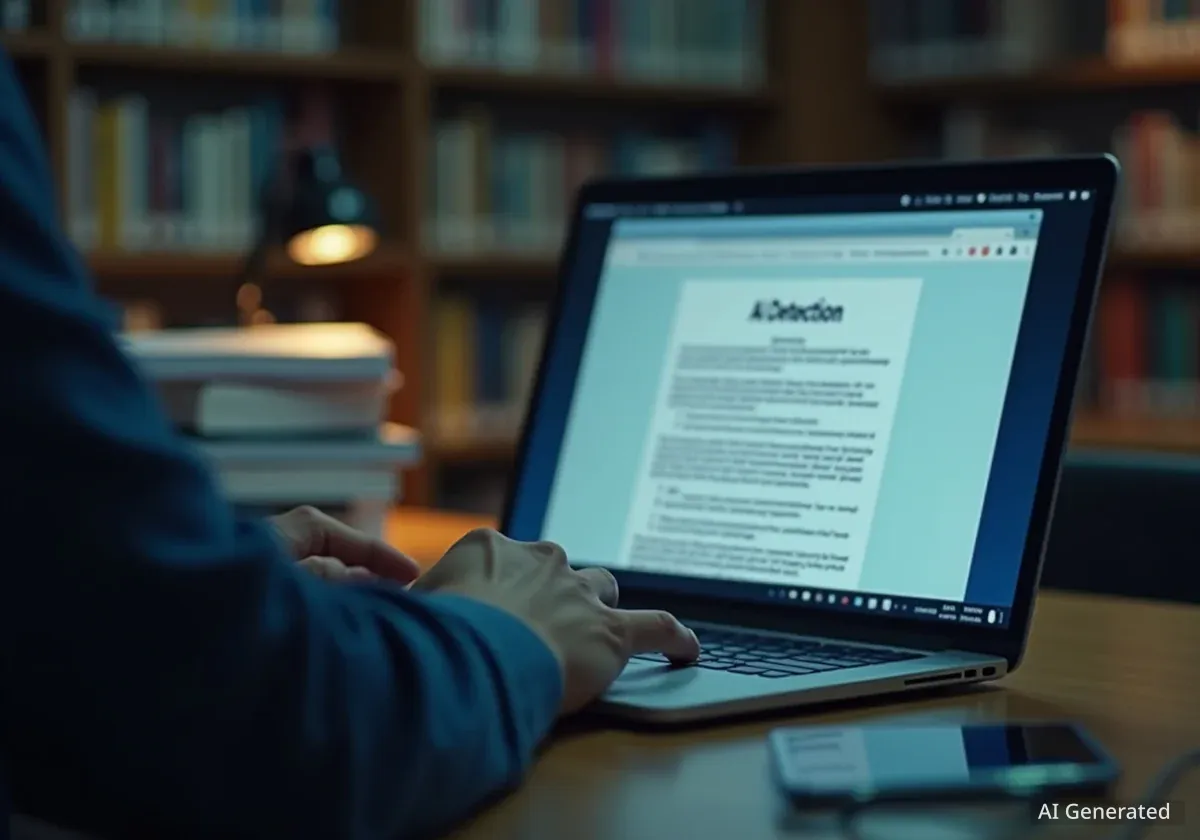Students at Australian Catholic University (ACU) have faced serious academic and career consequences after being incorrectly accused of using artificial intelligence for their assignments. The university based these allegations on an AI detection tool, which has since been discontinued due to concerns about its accuracy.
The situation has highlighted the growing tension and erosion of trust within higher education as institutions grapple with the rise of generative AI. For some students, the process of clearing their names has taken months, jeopardizing their graduation and employment prospects.
Key Takeaways
- Australian Catholic University students were wrongly flagged for AI-based cheating by the Turnitin detection tool.
- One nursing student faced a six-month investigation, causing her to miss a graduate job opportunity.
- The university demanded students provide extensive personal data, including full internet search histories, to prove their innocence.
- ACU reported a surge in academic misconduct referrals related to AI in 2024 but has since stopped using the detector as the sole basis for accusations.
Students Face Career Setbacks from False Accusations
The impact of these wrongful accusations has been significant for students. Madeleine, a final-year nursing student at ACU, described a distressing experience that began with an email titled “Academic Integrity Concern.”
While she was completing her final nursing placement and applying for graduate positions, the university's allegation put her academic future on hold. For six months, her transcript was marked with “results withheld” as the investigation proceeded.
“I was getting emails from the academic misconduct board saying I needed to write out an explanation as to why I think this might have happened,” Madeleine explained in a report from ABC News.
She believes this mark on her record directly contributed to her inability to secure a graduate position, a critical step for starting a career in nursing. “It was really difficult to then get into the field as a nurse because most places require you to have a grad year,” she said.
An Invasive Burden of Proof
The process for students to prove their innocence was described as alarmingly invasive. Instead of the university providing concrete evidence of misconduct, the burden fell entirely on the accused students to demonstrate they did not use AI.
According to emails reviewed by ABC News, ACU's academic integrity officers made extensive demands for personal information. Students were asked to submit:
- All handwritten and typed notes for their assignments.
- Their complete internet search histories for the duration of the assignment period.
This approach raised concerns among students, who felt the university was overstepping its authority. “They’re not police. They don’t have a search warrant to request your search history,” an ACU paramedic student, who was also wrongly accused, told reporters. He added that the fear of having to repeat a unit compelled many to comply. “You just do what they want.”
The Challenge of AI in Education
Universities worldwide are struggling to adapt to the widespread availability of AI tools like ChatGPT. While many institutions are exploring ways to integrate AI into learning, they are also implementing strict policies against its unauthorized use. This has created a complex environment where the line between acceptable use and academic dishonesty can be unclear, and the tools used to detect cheating are themselves imperfect.
Flawed Technology Leads to Widespread Allegations
The basis for these accusations was an AI detection feature within Turnitin, a popular software long used by educators to check for plagiarism. However, the effectiveness of AI detecting other AI has been widely questioned.
The paramedic student noted the unreliability of the tool in his case. “It’s AI detecting AI and almost my entire essay was lit up in blue — 84 per cent of it supposedly written by AI,” he stated.
A Surge in Misconduct Cases
In 2024, Australian Catholic University reported nearly 6,000 cases of alleged cheating. Approximately 90 percent of these cases were related to the suspected use of artificial intelligence.
Turnitin's own guidelines caution against relying solely on its AI detector. The company’s website states that the tool “should not be used as the sole basis for adverse actions against a student.” Despite this warning, students reported that the AI-generated report was the primary evidence presented by the university.
University Acknowledges Issues and Changes Policy
After more than a year of using the tool and facing criticism over its accuracy, ACU officially stopped using the Turnitin AI detector in March 2024.
Tania Broadley, the deputy vice-chancellor at ACU, addressed the situation, telling ABC News that the reported number of cheating cases was “substantially overstated.” While she acknowledged an increase in academic misconduct referrals last year, she did not comment specifically on the students who were wrongly accused.
Broadley stated that the university's policy was to dismiss any case where the Turnitin AI report was the only piece of evidence. “Around one-quarter of all referrals were dismissed following investigation,” she said, adding that “investigations were not as always as timely as they should have been.”
However, the experiences of Madeleine and others suggest that investigations were often lengthy and stressful, leaving students in academic limbo for extended periods. The incident has damaged the trust between students and the university, raising critical questions about the role of automated systems in academic integrity.





